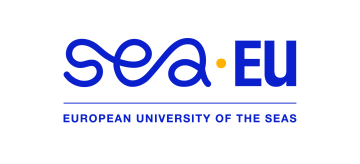Aleksandra Zahorska: master of Science in Chemistry with a specialization in teaching. Doctor of pedagogy. Assistant professor at the Division of Didactics and Popular Science at the Faculty of Chemistry. Specializes in the education and training of future teachers. Passionate about popularizing chemical knowledge and a constructivist approach in education. Teacher of chemistry and German language at a primary school.
ORCID: 0009-0004-4492-1810
Paweł Śpica: doctor of social sciences in the field of pedagogy, social pedagogue, historian, historian of education, Vice-Dean for Education at the Faculty of Social Sciences to the UG, Head of the Teacher Education Centre to the UG, representative of the UG in the European Teacher Education Network; conducts research in the area of history of education and school pedagogy
ORCID: 0000-0002-0170-9834
Małgorzata Obrycka: doctor of social sciences, educator, psychologist. Assistant professor at the Department of History of Science, Education and Upbringing (University of Gdansk). Specialist in quantitative and qualitative methodology. Conducts research on new technologies in education (eyetracking), ecological pedagogy, school pedagogy, independent ethics and posthumanism. Author of the concept of education for interspecies humanitarianism.
ORCID: 0000-0001-8202-4185
Szymon Dąbrowski: doctor of social sciences in the field of pedagogy, MA in philosophy and sociology from the University of Gdańsk, MA in theology from the Catholic University of Lublin, and certified tutor at the Collegium Wratislaviense. Vice-President of the Pomeranian Philosophical and Theological Society and Thematic Editor of the Journal Karto-Teka Gdańska. His research interests include the philosophy of education, pedagogy of religion and culture, and intercultural studies. He is currently conducting a project devoted to research on cultural and processual pedagogy of religion in Poland.
Orcid: 0000-0002-7268-5665
Aleksandra Zahorska
Paweł Śpica
Małgorzata Obrycka
Szymon Dąbrowski
Our research team is a response to one of the key challenges of contemporary education systems in Poland and abroad, which is building valuable cooperation between schools and students' parents.
In 2024, in cooperation with researchers from the University of Pomerania in Słupsk and the Pomeranian University of Applied Sciences in Starogard Gdański, we conducted qualitative research consisting of conducting nearly 60 phenomenographic interviews with teachers (representing four generations present on the labor market - BB, X, Y, Z) employed in general secondary schools in the Pomeranian Voivodeship (Poland). We asked the surveyed teachers about their understanding of the concept of cooperation between schools and parents, their experiences in this cooperation and their vision of ideal cooperation. The research results we obtained indicate communication as a key element in building valuable school-parent cooperation.
In connection with the above, we currently (using quantitative methods) want to research the communication competences of teachers in selected European countries. The study we propose, in which we would like to involve researchers from other SEA-EU member universities, will bring us closer to achieving our main educational goal, which is to prepare a program to support the development of teachers' communication skills. Together with researchers from other universities, we would like to develop a common research tool (quantitative) and conduct comparative research in selected SEA-EU member countries.
Samodzielne myślenie uczniowskie w rozpoznaniach badawczo-innowacyjnych w dydaktyce chemii
Bartoszewicz Małgorzata, Zahorska Aleksandra (WCh/ZDiPN), Forum Oświatowe, 2018, vol. 30, nr 2 (60), s.87-102
Obrycka M., Zalewska-Meler A., Spostrzeganie wzrokowe dziecka przedszkolnego jako złożona funkcja poznawcza: eyetracking w badaniach pedagogicznych, Gdańsk 2025.
Śpica P., Hegemonic childhood in the Polish community of West Prussia in the second half of the 19th and early 20th centuries, 'Problemy wczesnej edukacji' 2022, nr 2.
Obrycka M., W stronę posthumanizmu. O wychowaniu do humanitaryzmu międzygatunkowego, Toruń 2021.
Siemionow J., Śpica P. (red)., Historyczne i współczesne konteksty badań nad edukacją: studia teoretyczne i analizy empiryczne z okazji jubileuszu sześćdziesięciolecia pedagogiki gdańskiej (1958-2018), Toruń 2019.
